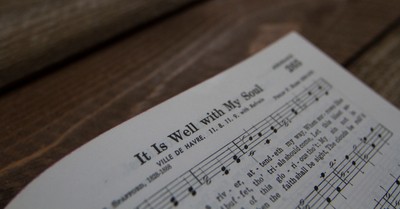Government Without God Means People Without Freedom
-
Paul Dean Dr. Paul J. Dean's Weblog
- Updated Sep 17, 2008
September 17, 2008
Confusion continues to abound when it comes to the issue of church and state. The bulk of that confusion concerns the meaning of the word “establishment” in the “establishment clause” of the First Amendment and the implications of said clause. The First Amendment reads thusly: “Congress shall make no law respecting an establishment of religion, or prohibiting the free exercise thereof; or abridging the freedom of speech, or of the press; or the right of the people peaceably to assemble, and to petition the government for a redress of grievances.” That sounds simple enough.
The intention of the founders and the obvious meaning of the “establishment clause” is that the government may not establish a state church or force anyone to engage in religion or religious practice. The clause does not mean that people have the right not to hear others talk about religion nor does it mean that government proceedings must be free from religious observances. It simply means that the government may not force anyone to do anything religiously speaking.
Moreover, while the “establishment clause” must be affirmed with all vigor from a biblical perspective for a free society, not only does the clause not prohibit God-talk in the public square, but government must be grounded in the reality of God and what He has to say. Liberty and justice for all cannot be sustained apart from a commitment to biblical principles.
On the other hand, the “free exercise clause” guarantees to people the right to worship as they see fit without fear of their worship being outlawed as long as they don’t incorporate dynamics into their worship that would harm or hinder the freedom of others. Of course, other rights that have to do with public discourse are guaranteed in the First Amendment as well. These rights include freedom of speech, the press, peaceable assembly, and the petitioning of the government.
And yet, these rights are increasingly being ignored today because God is being ignored in the public square. In a recent interview with Michael Johnson, Senior Legal Counsel for the Alliance Defense Fund on “Calling for Truth,” we talked about the fact that the First Amendment to the Constitution guarantees freedom of speech. However, there are numerous cases across the country where people’s First Amendment rights are being violated. Johnson highlighted a few of these. For example, “in ‘Baumann v. City of Cumming,’ a sixty-eight year old, Georgia man was denied his right to free speech, charged, jailed, and convicted without due process of the law for distributing religious tracts on a public sidewalk. In ‘The People of the State of New York v. Raven,’ two Christians attempted to share their faith peacefully at a so-called ‘Gay Pride’ event in El Mira, New York. They were arrested and charged with disorderly conduct for exercising their free speech and religious freedom in a public venue. In ‘Commissioned II Love v. Yarbrough,’ a Christian student organization at Savannah State was booted off campus for engaging in foot washing or ‘harassment’ according to university officials. The case continues in court after a federal judge refused to grant the university’s motion to dismiss.”
The First Amendment is under attack on many fronts today, not the least of which are the two major fronts. Both the “establishment clause” and the “free exercise clause” are being systematically reinterpreted and dismantled. This dynamic spells the death of freedom in America if a reversal is not forthcoming as a multiplicity of freedoms have already been eroded or eliminated. It is only a matter of time before the “land of the free” will be nothing but a memory.
Of course, The First Amendment is grounded in a Christian worldview. An acknowledgement of God’s existence and the reality of His Creatorship and Governorship of the Universe under-girds that amendment. He is the One who has created all human beings in His image. As such, He is the One who gives life and liberty and He is the only One who can take life and liberty at His discretion. The fact that human beings are free, moral agents is derivative of their being created by a Sovereign God. No man has the right to take the life or liberty of another. Certainly a man may take the life of another in self-defense, if necessary. But, even that dynamic is grounded in the reality that no man may take the life of another as it is by virtue of that reality that a man has the right to prevent another from taking his life. Further, government is enlisted as an agent to defend the citizens from those who would take their lives and employs certain preventative, corrective, and punitive measures to fulfill its agency role (Rom. 13:1f). But, when the government ignores God, those principles that ensure freedom slip away.
Let us keep those dynamics in mind, even as a brief article entitled, “Mao versus the Decalogue: The Separation of God and State,” underscores the necessity of grounding government upon a Christian worldview. Citing Mao Tse-Tung as example, the point is made that government divorced from God will move toward oppression. As a young man, Mao penned these words: “Of course there are people and objects in the world, but they are all there only for me…People like me only have a duty to ourselves; we have no duty to other people.” The devastating effect of his philosophy is seen in his cruel, totalitarian regime. There is a connection between the casting off of God and the destruction of liberty.
Also highlighted in the mentioned article is the practical outworking of Mao’s philosophy as placed beside the Decalogue (I have pasted wholesale from the article in the list below).
1) You shall have no other gods before me: With the “Cultural Revolution” of the 1980s came “the exaltation of Mao and his ideas to the exclusion of everything else. He was no longer venerated; he was worshipped.” In effect, he chose to become a god to his people.
2) You shall not make for yourself…any likeness…You shall not bow down to them…: “At workplaces each morning, people stood in formation and bowed three times before Mao’s portrait…They repeated the same ritual each evening…”
3) You shall not take the name of the LORD your God in vain: Even godless Buddhism was desecrated and profaned: “Holy Scriptures were used for manure, and pictures of the Buddha and sutras were deliberately used to make shoes.” Of course, Christian sensitivities fared no better.
4) Remember the Sabbath day, to keep it holy: This meant nothing to Mao, who denied Lord’s Day liberty to his people, sometimes granting them only two days off work per month.
5) Honor your father and your mother…: He said his father deserved torture, and when his doting mother lay dying, he stayed away to avoid seeing her agony. Thus: “[T]he image of my mother in my mind has always been and still is today a healthy and beautiful one.”
6) You shall not murder: He was “responsible for well over 70 million deaths in peacetime, more than any other twentieth-century leader.”
7) You shall not commit adultery: As his personal physician wrote of Mao in his sixties, “He was happiest and most satisfied with several young women simultaneously sharing his bed,” and “[h]e encouraged his sexual partners to introduce him to others for shared orgies.”
8) You shall not steal: Mao confiscated whatever he wanted for his personal convenience, including, in 1937, a palatial house in the Phoenix Village district of Yenan.
9) You shall not bear false witness against your neighbor: “A high-decibel smear campaign accused Catholic priests and nuns of heinous actions ranging from plain murder to cannibalism and medical experiments on babies.”
10) You shall not covet…: “Mao coveted nuclear weapons and the rockets to deliver them.” The ethanol needed for a single rocket consumed 10 million kilograms of grain, food which he took from the mouths of his starving people during the century’s worst famine.
When God goes, liberty goes. History affirms such and indeed its necessity. Godless philosophy necessitates oppression as might makes right.
For our part in referencing the above template, it is not that we should affirm a theocracy, or even the Decalogue as given, as a foundation for civil law in contemporary geo-political states. The Christian worldview prohibits such, though principles from each commandment must under-gird civil law.
For example, as a nation state that is distinct from both Theocratic Israel and the Church, the United States (or any nation state) should not force the population to worship Christ. We cannot apply the first commandment in that way. People must be won by the gospel and not coerced to profess Christ with their lips only. Neither does anyone have the right to coerce another in terms of religion. That is what the “establishment clause” is about and that is what it means to guarantee religious freedom for all. However, the state should allow freedom of worship and not demand worship of the state or its leaders. That is what the “free exercise clause” is about. In other words, principles of religious freedom can be gleaned from the first four commandments as they are applied to a geo-political state in light of what the New Testament has to say concerning the separate roles of church and state.
Further, we garner application from the fifth commandment. Every segment of society should be respected and treated with dignity. The rights of one segment cannot be removed simply as a matter of convenience whether that segment has yet to be born or has outlived its usefulness as deemed by some. Obviously, murder, sexual perversion that harms others, stealing, extortion, and fraud must be outlawed in a civil society and are covered by commandments six through nine. The tenth commandment can certainly be applied to property rights.
While further application could be derived, the point is that a government divorced from biblical principles will never move toward freedom for the people but only toward oppression. It is important for believers to understand how to apply the Scriptures to the culture war in which we find ourselves. It is important to understand the critical issues of our day and the principles which will define how the people as a whole should be treated and how those same people will be persuaded to vote. In other words, we must understand the connection between the Christian worldview and liberty and justice for all and propagate that understanding. It will not do to simply castigate those with whom we disagree and fight for our perceived rights and agenda. The church is not the state. We fight for biblical purity in the church and we fight for freedom in the land that more people in the land might hear the gospel and become part of the church for the glory of God. So, let us remember that government without God means people without freedom and that’s bad for all of us.
Sign up free for "Christian News and Views," a weekly e-mail newsletter highlighting relevant news stories affecting Christians. An editorial by Dr. Dean is included as well as a link to his comments on selected stories. The e-newsletter goes out each Friday and is sponsored by "Calling for Truth," a daily, live, call-in radio program co-hosted by Dr. Dean and Kevin Boling. Simply e-mail us at pauldeanjr@juno.com to receive your first issue this Friday.



















